Our Solution: A software EKG generator
Software EKG generation is the best tool for students, educators, and institutions to teach ECGs and conduct realistic medical simulation.

Dialed Medic's software EKG generator is the best tool to learn, practice, teach, and test electrocardiogram rhythm interpretation. While nothing can completely replicate the variety of patient ECGs in a clinical setting, we use procedural generation to realistically create novel rhythm tracings on-demand.
Normal Variation in EKGs
The following three images are all software generated atrial fibrillation tracings:



Key features, such as irregular RR intervals and disorganized fibrillation waves, make them recognizable as atrial fibrillation. Other portions of the waveform vary between tracings with unique morphology. This better simulates the clinical experience, where no two patients have identical tracings, even if they are in the same cardiac rhythm.
Longer Practice Tracings
In other cases dysrhythmias have patterns which play out over a longer time period, making them difficult to display in traditional media. The EKG graph displays time on the X-axis (left / right) at 25mm per second as a standard. It takes 5 feet of paper (1500mm) to record 1 minute of EKG data. As an example:

This is a second degree type II atrioventricular block. In the ~19 seconds presented, a clear pattern of 6:1 A/V conduction with a single failed conduction for every five successful can be seen. However, if this rhythm were allowed to play out over time, we find something different:

Monitoring the rhythm for just a few more seconds reveals that the atrioventricular block is actually intermittent, with many more dropped QRS complexes than the initial tracing would indicate.
Our EKG simulation software generates 60 seconds of EKG data every time a tracing is created. This gives students a more realistic experience of monitoring a patient's cardiac rhythm over time, where important features may not be visible on the monitor at all times. That dynamic is especially important in medical simulation, when a student's attention is expected to be divided between important patient care tasks.
Artifact & Baseline
Artifact and "baseline wander" are normal parts of ECG capture in the clinical setting. They can prove to be significant confounding factors to interpretation, especially in the emergency and transport environments. Our EKG software accurately simulates these, but can also produce "clean" tracings for example or introductory use. (examples below)



"Clean" tracings provide ideal rhythms without any confounding factors, perfect for teaching beginners or demonstrating a concept clearly. Tracings with artifact and baseline changes are more difficult and more realistic, perfect for testing and medical simulation.
Ectopy
Ectopy is also a normal feature of clinical electrocardiograms which is difficult to simulate in training. We seamlessly integrate ectopy into tracings with monomorphic (free) and polymorphic (pro) examples.


Dynamic Display
The above examples also illustrate the display modes of Dialed Medics EKG generator. Our free option has a single display mode modeled after a cardiac monitor display. Students are able to start and stop the tracing playback. Our pro version has the option to switch back and forth between the monitor display and a tracing display. The tracing display outputs an ECG tracing onto EKG graph paper for detailed examination.

Dynamic Interface Modes
To help with study, teaching, and simulation, the web application provides four interface modes: Study, Flashcard, Quiz (pro), and Simulation (pro).
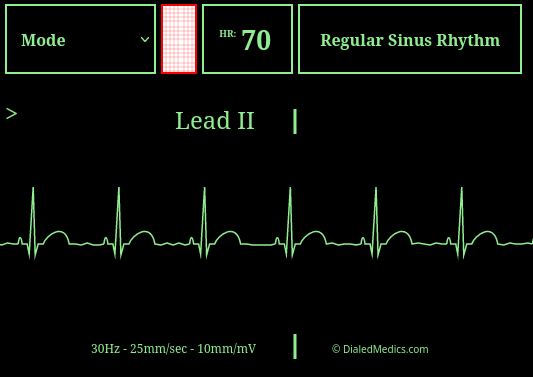
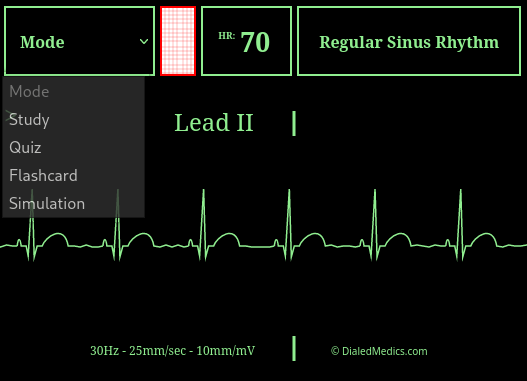
DialedMedics EKG generator mode user interface.
Study (free)
Study mode allows the user to select any rhythm and its characteristics such as rate, regularity, and ectopy.
Flashcard (free)
Flashcard mode displays a random EKG tracing while hiding the name until the user clicks or taps.
Quiz (pro)
Quiz mode provides a basic multiple choice quiz interface and score keeping.
Simulation (pro)
Like study mode, simulation mode allows the user to select a rhythm and its characteristics to display, but also allows the name of the rhythm to be hidden. An instructor can then show a student the selected EKG without any spoilers on the screen.
Education & Simulation Anywhere
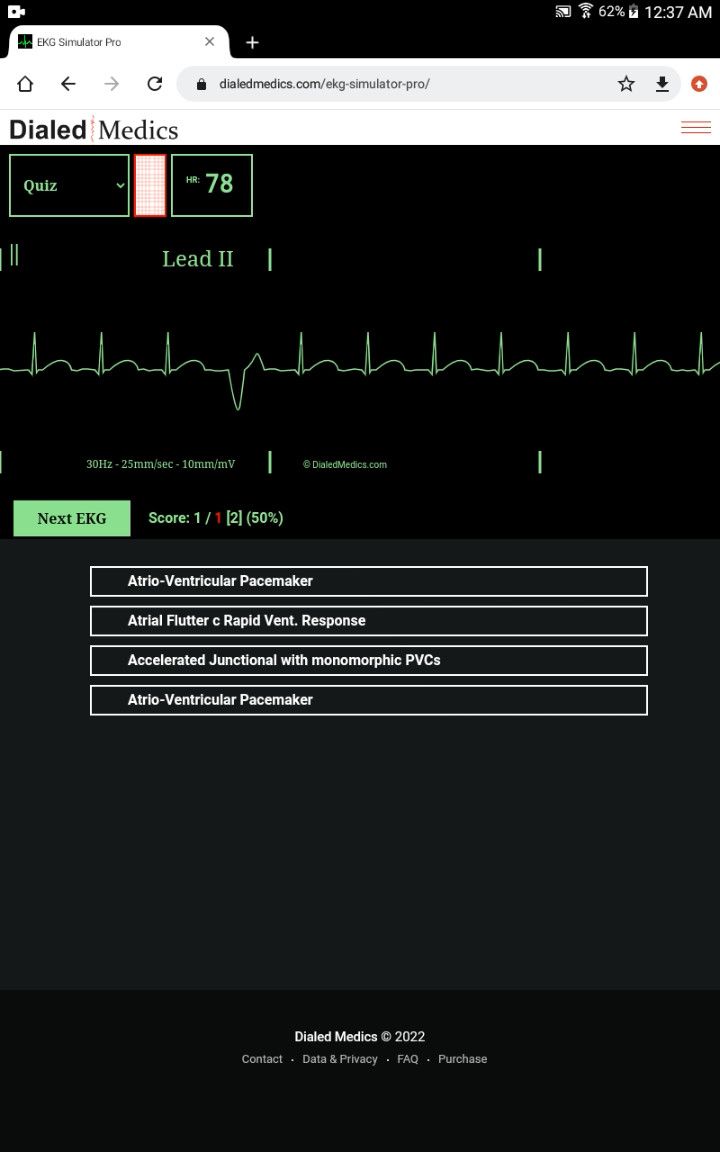
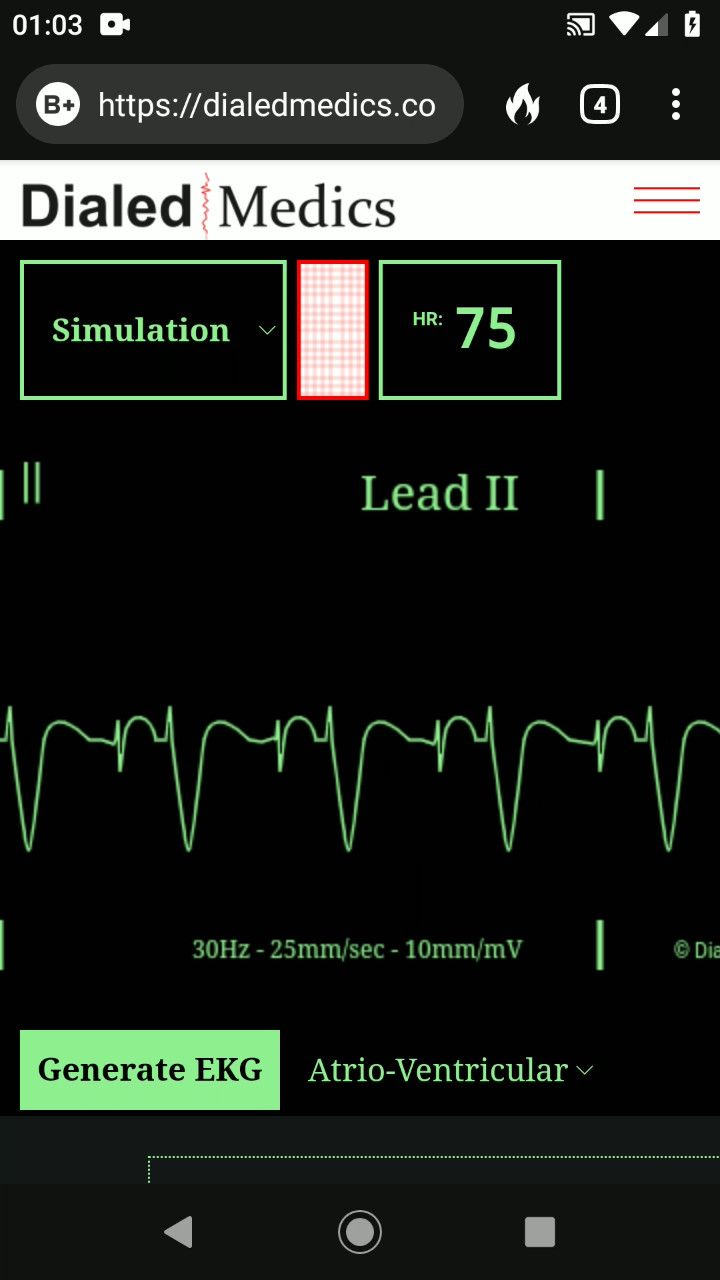
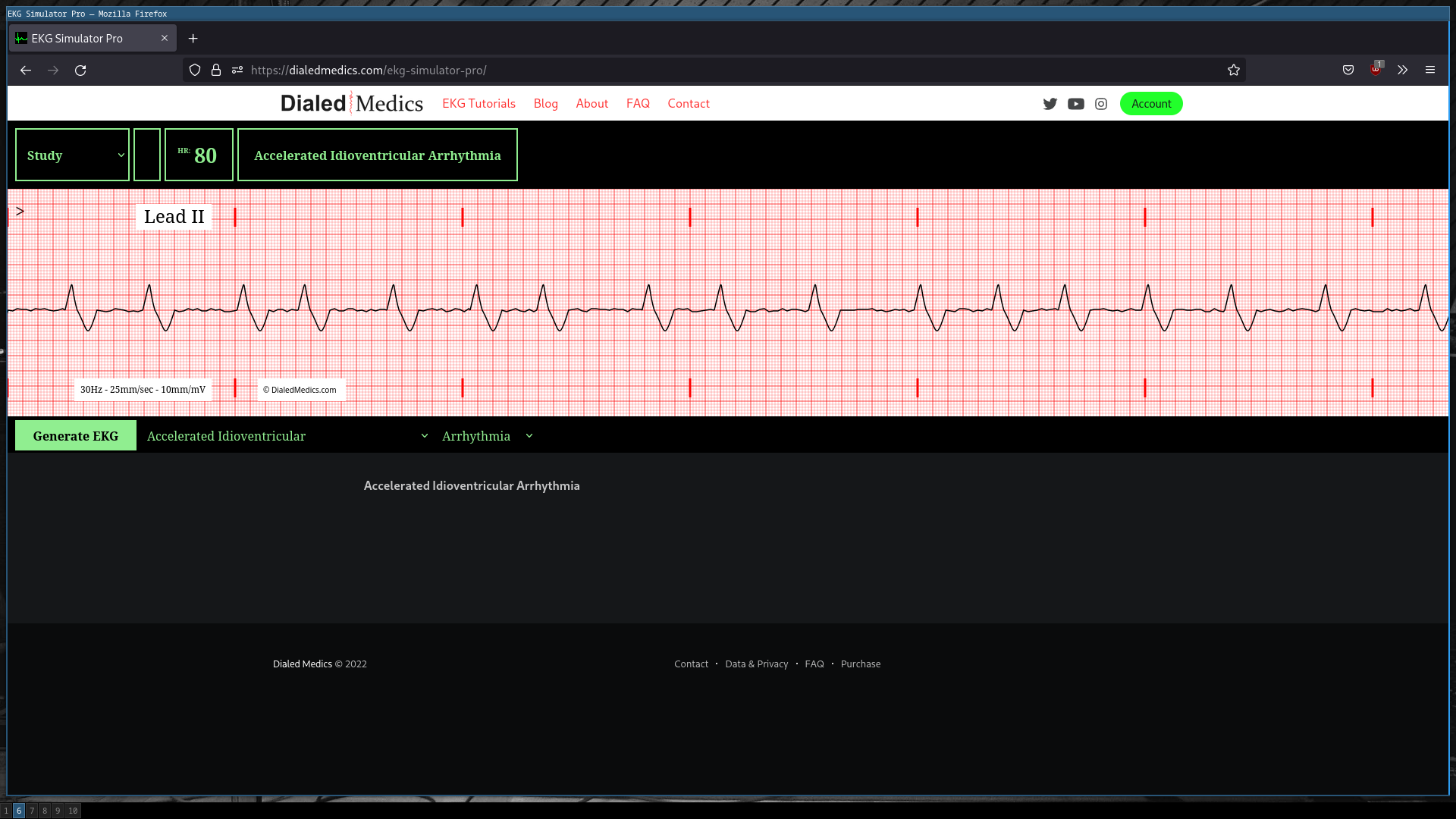
DialedMedics.com web app runs on any platform with a modern web browser (javascript / html5).
Our web app is cross platform, written in JavaScript and using html5's <canvas> element for display. This makes it easy to display ECGs on large format monitors or projectors during lectures or on a smartphone / tablet during simulations.
You can access DialedMedics.com EKG generator right now. Student access is $5 for one month or $40 for one year of our professional EKG generator. No obligation, no fees, cancel any time. We also offer a free, limited version you can access with just an email. If you're ready to get started follow one of the links below!
Purchase Pro EKG Generator!
- Monitor and Tracing display modes.
- Quiz, Flashcard, Study, and Simulation modes.
- Monomorphic and polymorphic ventricular ectopy.
Try Free EKG Generator!
- Study and Flashcard modes.
- Monomorphic ectopy.
For other questions:
- See our FAQ or email us at: [email protected]
